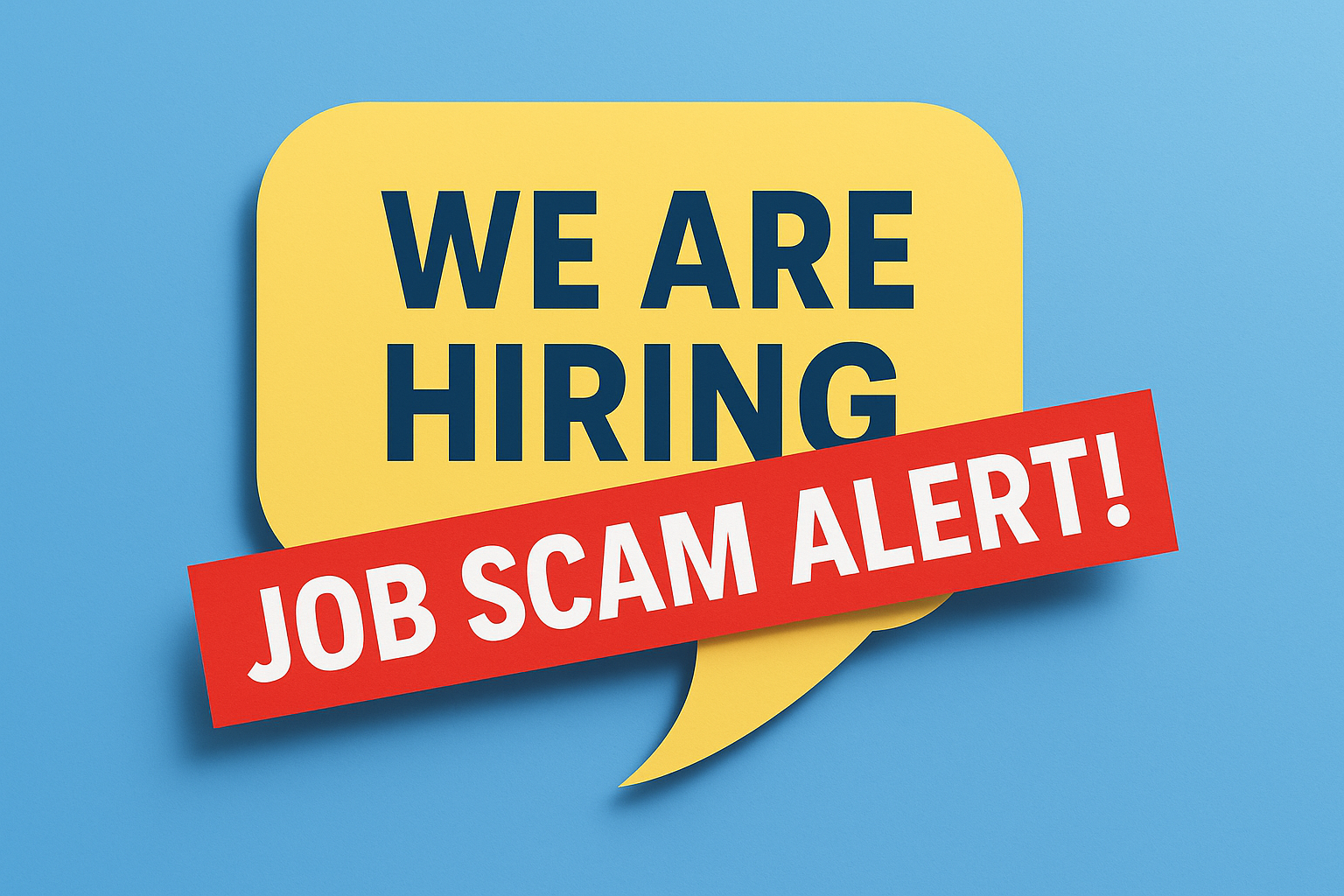Fake job postings are no longer just sloppy phishing emails. According to new cybersecurity research, coordinated networks are now dangling $8,500/month “analyst roles” to lure professionals into sophisticated job scams.
In my coaching practice, I’ve been fielding more and more job-scam questions from clients. This latest reporting from Nextgov/FCW highlights why vigilance is no longer optional.
Investigators uncovered a likely China-linked network of look-alike “consultancies” and journals active since 2021, with polished websites designed to deceive job seekers.
Even though direct state ties were not confirmed, the tactics are familiar. Shared infrastructure, awkward copy, and inflated salaries echo known recruitment tradecraft.
More importantly, these warning signs now appear across the mainstream job market. That is why every job seeker needs a reliable verification routine.
Moreover, Reuters has also reported similar fronts targeting recently laid-off U.S. government workers, demonstrating how scams follow stress and urgency in the labor market.

What Researchers Found About Fake Job Postings
The Foundation for Defense of Democracies (FDD) traced multiple look-alike consulting sites that shared digital infrastructure dating back to 2021.
According to Nextgov/FCW, one of the most active was Foresight and Strategy, which posted remote policy analyst jobs advertising “upwards of $8,500/month.” The site shared servers with International Affairs Review and Institute of International Studies, both identified as fictitious.
All three domains were registered in China. In addition, some postings even appeared on public job boards like Craigslist and Arena Careers. While direct government sponsorship wasn’t confirmed, U.S. officials noted the patterns aligned with known recruitment scams: impersonating think tanks, exploiting remote work, and offering inflated salaries to bypass skepticism.
Earlier Reuters reporting uncovered related fake job boards and consulting firms using empty addresses, clustered servers, and disconnected phone numbers—all designed to exploit vulnerable job seekers.
Why Job Scams Affect Everyone
It’s tempting to see this as a national-security issue, but in reality the same tactics—urgency, professional-looking sites, fake recruiters, and too-good-to-be-true salaries are increasingly used against everyday professionals.
One of the fastest-growing forms is text-message job scams, also known as smishing. As a result, losses from fraudulent job texts are climbing rapidly.
Therefore, treat these the same way you treat phishing emails: don’t click, don’t reply, and always verify.
On iPhone: tap Delete and Report Junk On Android: tap Report spam in Google Messages Forward suspicious texts to 7726 (SPAM) so your carrier can block them.
For more on protecting your credibility as a candidate, see my article What Is a Magnetic Résumé?

Salary Verification: A Fast Filter for Job Seekers
Scammers often pitch pay ranges that feel enticing but unrealistic. Salary verification is one of the fastest ways to expose a fake job posting. According to Salary.com, recent U.S. averages include:
- Public Policy Analyst I — $89,190
- Public Policy Analyst II — $104,270
- Policy & Process Analyst — $112,992
- Economic Policy Analyst — $108,005
- Government Affairs Manager — $150,400
If an unsolicited offer is far outside these benchmarks, slow down and verify the recruiter and company.

How to Verify Recruiters and Companies
- First, check the language. Poor grammar and spelling errors are serious red flags.
- Second, confirm LinkedIn verification. Look for the shield/checkmark badge when LinkedIn confirms a recruiter’s identity or workplace. (Source: WIRED, The Verge)
- Third, cross-check the role. Always verify job postings on the company’s official careers page.
- Next, look at email domains. Legit recruiters use @company.com, not Gmail or Yahoo.
- Finally, do a domain lookup. Use ICANN Lookup or a WHOIS tool to confirm domain age, registrant country, and servers.
- As a rule of thumb, beware of rushed timelines, interview-by-chat only, or requests for personal or banking info before a formal offer.
How to Report Job Scams
Report fraud to the FTC at ReportFraud.ftc.gov, even if you didn’t lose money. For spam texts: forward to 7726 (SPAM) and block the sender. On LinkedIn: use the “More…” menu to Report/Block impersonators.
What To Do If You Already Engaged With a Scam
Stop contact and save all evidence (emails, texts, phone numbers). Change your passwords and enable multi-factor authentication (MFA). Call your bank if you shared financial information. Place a credit freeze if your Social Security Number or personal data was shared. File reports with the FTC and, if money moved, with your state Attorney General or IC3.gov.
Best Practices for Safer Job Searching
Start with the company’s official careers site before engaging with recruiters. Use compensation benchmarks (like Salary.com) and adjust for geography. Run a quick WHOIS check on unfamiliar domains. Validate the recruiter’s LinkedIn profile, badge, and history. Treat text-message job offers as phishing attempts by default.
Action Checklist for Job Seekers
✔ Verify jobs on official company sites
✔ Benchmark salaries with Salary.com
✔ Look for LinkedIn’s verified recruiter badge
✔ Run ICANN/WHOIS checks on domains
✔ Treat job texts as phishing and forward to 7726
✔ Report scams to ReportFraud.ftc.gov
Key Takeaways
- Fake job postings are becoming more sophisticated and professional.
- These scams now target all job seekers, not just former federal officials.
- A consistent process of verifying the recruiter, company, domain, and salary will block most scams before they cause damage.
Protect Your Job Search
Scams are evolving, but so are the strategies to stay safe. Inside my Six-Figure Career Accelerator, we go beyond scam detection to teach the tools and strategies that help professionals land interviews and offers faster, with confidence and security. We’ll be starting a new cohort soon. If you’d like to know more about the Six-Figure Career Accelerator, reply to the email that brought you here, or click the maroon bubble on the bottom right of the screen.
Here’s a resource you can use today. Download our free Job Seeker Safety Toolkit™ to access job and recruiter verification, email scripts, salary benchmarking worksheets, and reporting guides.
Stay safe in your job search!
- Mental Health and Career Success: Finding Clarity in Uncertain Times - October 10, 2025
- China-Linked Fake Job Scams Target U.S. Officials - September 17, 2025
- Why I Invest in LinkedIn Training: A Power Tool for Career Growth - August 10, 2025


